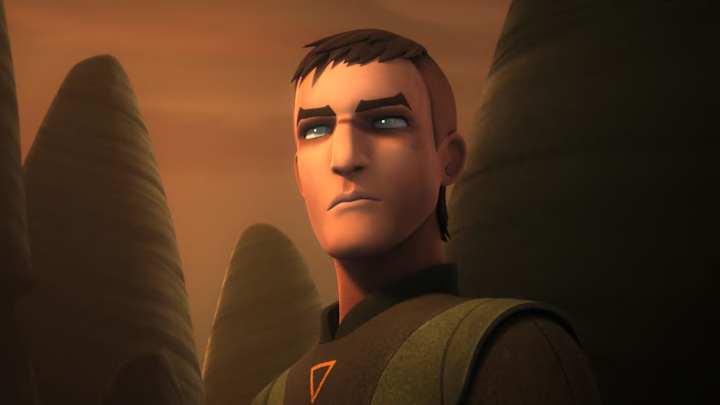Say what you will about the Star Wars television output--and there's no denying that there is a lot to say--but people who find a connection to the galaxy far, far away have never had this much visual media to choose from. If you want a high-stakes adventure, you can binge The Mandalorian. Young and old can enjoy Young Jedi Adventures. This last summer, The Acolyte challenged our perceptions of the Dark Side and Jedi morality. That's not even taking into account projects that show the misadventures of The Bad Batch or Cassian Andor's early trials on the way to becoming a rebel leader.
I've spoken before about the strong points of Star Wars Rebels from the perspective of a newcomer, but I would now like to look at the series from a broader perspective. What is it about this show that creates such a lasting impression and begs for continuing adventures?
A friend of mine often praises projects that have "scope." Put simply, these are works that show how storytellers create elements on a small scale that show evidence of a much larger vision.
Plainly put, Rebels is something I've grown to enjoy because it has this kind of scope. In the original Star Wars trilogy, time skips were inevitable. Luke was the equivalent of a kid barely out of high school, but he came back in Episode V: The Empire Strikes Back with three years of warfare behind him and has grown so much as a pilot that he was an effective commander. Leia had matured and put her leadership skills to effective use on Echo Base. Han was incorrigible, but he knew how to channel his resilience. If you read the comics coming out through Marvel, you get to see a lot of character development and continuing adventures. However, a lot of personal development was still taken for granted.
Rebels has the luxury of drawing that development out. It is similar to Andor Season 1, in which Cassian isn't very good at his eventual area of expertise and has to learn that the hard way. We forgive Ezra for sometimes being a clueless kid. When Kanan isn't the most patient master a fledgling Jedi has, we can put that into the context of the trauma that has informed too much of his adult life. Sabine has her own tendency towards impatience, and don't get me started on Zeb as the roommate I would never want. The core ensemble cast is primed for both adventures and errant ventures.
And then the growth happens. Rebels takes us on a journey where later storylines keenly remind us of things that would have been out of reach for the characters at the beginning of their arcs. Because we see the crew in circumstances that aren't exactly the stuff of an opening crawl at first, the transformation into a major force to be reckoned with is worth the journey. When the universe becomes significantly more complicated for them, we don't have to wonder if they will be up to the challenge. We've seen them come this far and can anticipate them continuing to grow. When General Hera Syndulla is mentioned in Rogue One and, decades later, the Ghost comes to fight at Exegol in The Rise of Skywalker, it makes sense for our old friends to be still working on that scale. And this long-form storytelling is something that just can't be accomplished in a feature film.
Happy 10th anniversary to Star Wars Rebels.
